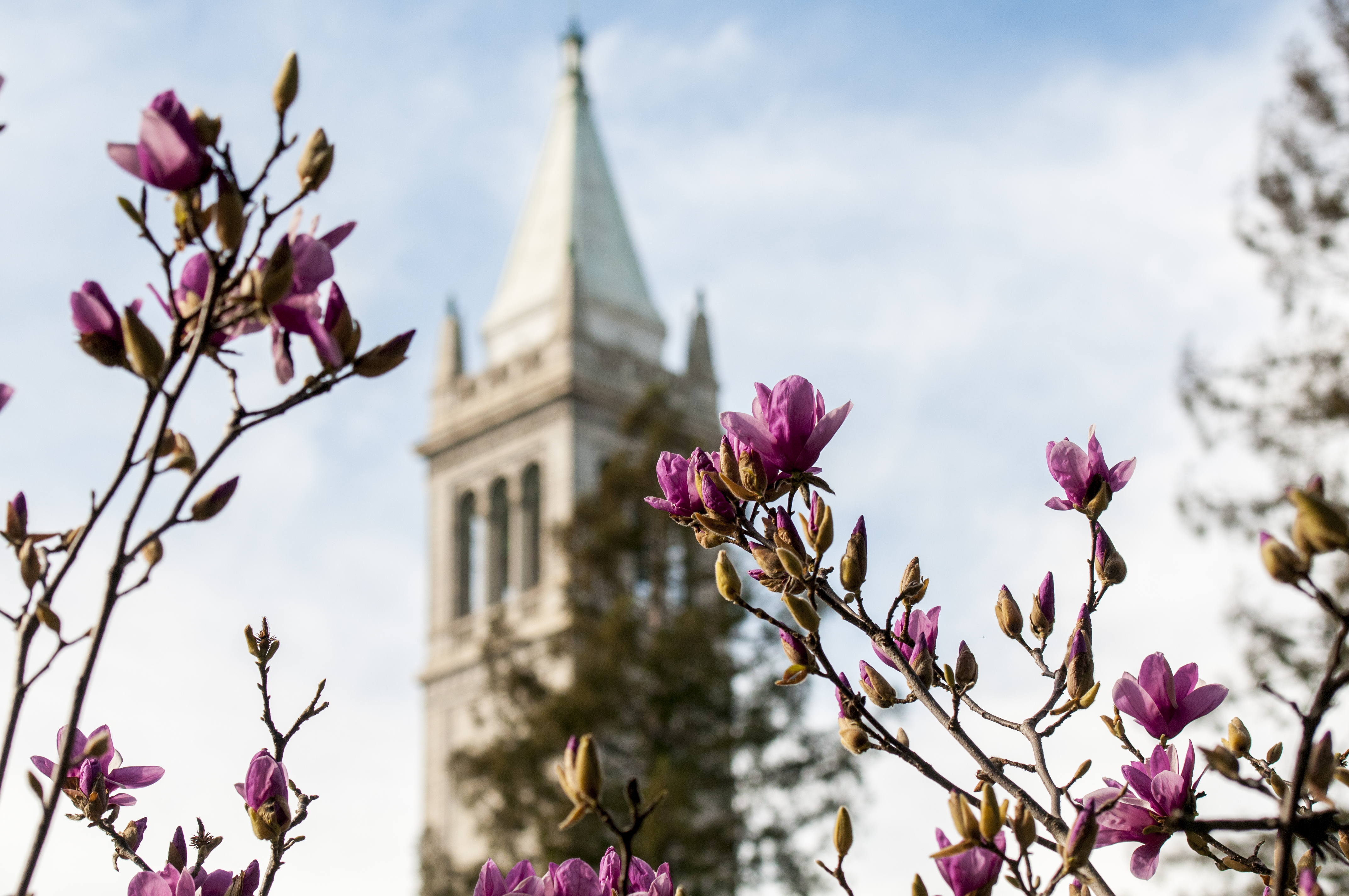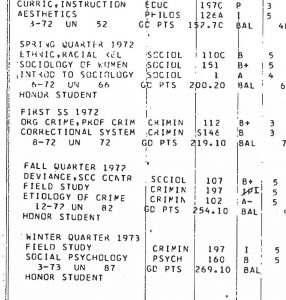
People rarely believe me when I say I started out as a Criminology major, but it’s true.
"Notably the Berkeley School of Criminology was targeted by key players in the US military-industrial complex such as Ronald Reagan himself, then Governor of California and Regent of UC-Berkeley."
I have a copy of my undergraduate transcript with all the classes right there: Protest, Politics and Crime;Organized Crime, The Correctional System, Etiology of Crime, Field Study (during which I volunteered with a bunch of kids in foster care),Sex and Crime, Social Perspectives on Crime. And then, it all stops. No more Crim classes. Why? A simple reason:the school was deemed too radical. For Berkeley.
I did a little bit of research for this topic, and discovered that Julia and Herman Schwendinger, known as key players in the Berkeley School of Criminology, wrote a book about what happened, entitled Who Killed the Berkeley School? Struggles Over Radical Criminology.
From the synopsis:
“The Berkeley School of Criminology stands, to this day, as one of the most significant developments in criminological thought and action. Its diverse participants, students and faculty, were true innovators, producing radical social analyses (getting to the roots causes) of institutions of criminal justice as part of broader relations of inequality, injustice, exploitation, patriarchy, and white supremacy within capitalist societies. Even more they situated criminology as an active part of opposition to these social institutions and the relations of harm they uphold. Their criminology was directly engaged in, and connected with, the struggles of resistance that emerged in the late 1960s and early 1970s. Not surprisingly perhaps, they became a target of regressive and reactionary forces that sought to quiet those struggles. Notably the Berkeley School of Criminology was targeted by key players in the US military-industrial complex such as Ronald Reagan himself, then Governor of California and Regent of UC-Berkeley.”
While I didn’t know all the details at the time, things started to go amiss right around the time I got there in 1968-69.
I am no longer sure about what drew me to this major, but I thought learning about these things would be a way to make a difference.Plus, the class on organized crime was fascinating. My father was appalled at my choice, insisting that I had no business wearing a white coat and examining chalk outlines on the sidewalk, but he missed the point, I think. It’s funny because he started out studying social work and ended up as a drama teacher. He asked me at the time what I was doing because, he said, “You’re a writer!” Oh, Dad. Jeez.
So there I was, with no hope of completing a degree in a major that no longer existed. Turns out my fallback was Sociology. But I often wonder why I didn’t just go with English, since the English classes I took were some of my favorites. My whole transcript is a hodgepodge of subjects. Once I had enough units in my major, I went off in a bunch of different directions: Astronomy (hardest class ever), Organizational Behavior, Biology of Man, Public Administration, Social Psychology, and Journalism. Because I was working full-time and taking one class a quarter for several years, I didn’t graduate until almost ten years after I started. (To clarify: I began taking classes at Cal while still a junior in high school. Then I took a year off to work full-time. When I came back, I took as few units as I could to accommodate my work schedule). My transcript begins Fall 1968, shows a name change in September 1973, and Bachelor of Arts granted on March 26, 1977. A long and winding road, indeed.
What I ended up doing in my working life had nothing to do with organized crime or sociology, but it had everything to do with being a helper. I became a short-term crisis counselor, first working with parents of critically ill or premature newborns in an Intensive Care Nursery at UCSF. I went back to school and earned a Master’s in Clinical Counseling. Again, not exactly a straight line from my undergraduate work. Then I went through a program for College and Career Counseling and worked in high schools for over 15 years. In 2011, I earned an MFA in Creative Writing and there you go. Should’ve stuck with English.




I love the tale of your long and winding career path. Your instinct to major in a version of criminology that looked into addressing root causes makes so much sense to me. Too bad the program was killed, and look where we are now, Counseling others in many capacities was a worthy choice. And now you can write about it.
Thanks, Laurie. I enjoyed the opportunity to look back and try to make some sense of that long and winding path!
I would have loved to take a course called Protest, Politics, and Crime! It would have fit right in with my hypothetical Revolution major. Thanks for taking us down your long and winding road. Nice that you ended up here, among other places, and we get to enjoy your very creative writing!
Thanks! I took a LOT of very interesting courses at Berkeley over the years…Wasn’t the best student in the world (juggling work and spending time with the boyfriend), but what an experience!
Wow, your studies and career(s) definitely took a convoluted but fascinating path. Rather cool in a way, but too bad about the criminology school. I was at Cal in 1975 and early 1976, but hadn’t even heard of it. The breadth of courses offered at Berkeley is really amazing and made for an interesting experience.
Thanks, Marian. You’re right about Berkeley. I took a Russian literature class about Dostoyevsky from a Nobel prize winner (Czeslaw Milosz), who talked me out of taking his Polish Poetry class later on! Also took sociology classes from Harry Edwards and Arlie Hochschild.
Fascinating teachers, Risa! I can’t claim that number, although I did take a grad English class on the Courtier poets (pre- and contemporaneous with Shakespeare) from Stephen Greenblatt, who must have been teaching for just a year or two at that time. He went on to Harvard and has written Will in the World and several other books. Extremely brilliant guy but on the arrogant side back then.
Thing I remember most about the Nobel prize winning poet? His very bushy eyebrows!!
Stuck with English? I don’t agree. Your was/is the “path less taken” and as Mr. Frost said, that makes all of the difference. As I said in a response to a reply to my story, there is a logic in circularity.
Tom, I have to agree that my path was less taken. But I did enjoy my English classes. They were entertaining and challenging and I have very fond memories of the work I did. However, abnormal psych and those crime-related classes took me places I never thought I’d go.
You did take an interesting path, Risa. Thanks for sharing it with us. You clearly are a born care-giver, so that was your natural instinct. Now you write about it and we are richer for it, as you share this with us.
Awww,, thanks so much Betsy!
Looking at that transcript, you were clearly passionate about radical criminology and I have no doubt that you would have set the justice system on fire had you been allowed to continue in that field. As it is, you were fortunate to have another passionate interest (writing) where you finally found a home. As Betsy says, we’re lucky you did!
Thank you so much!Nice to hear from you!